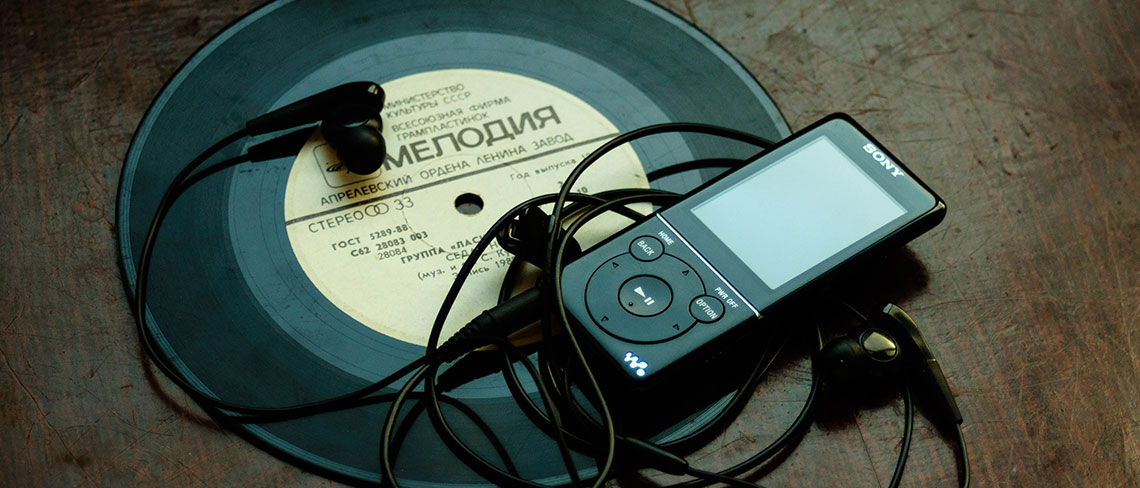
New research conducted by YouGov on behalf of leading claims portal Claims.co.uk highlights a worrying lack of awareness of how MP3 players should be used to avoid causing potential ear damage, that could lead to many new types of deafness claims – for music-related deafness and tinnitus – in the future.
Of the 2,028 adults questioned in the Nationally Representative survey conducted in July 2015, 94% of parents to 16 year-olds were unaware of the NHS guidelines on earphone use with MP3 players, which states the recommended listening time of 60 minutes a day at 60% level of volume, also known as ‘the 60:60’ rule. 81% of all adults asked were unaware of the guidelines, despite the successful Action on Hearing Loss campaign for European standards for personal music players, which has been in effect since 2009.
According to the World Health Organisation, ‘among teenagers and young adults aged 12-35 years, nearly 50% are exposed to unsafe levels of sound from the use of personal audio devices’, and the YouGov survey suggests a lack of information for parents could result in health concerns for the next generation. The survey showed only 12% parents to 10 to 16 year olds consider themselves very concerned about the dangers of earphone use, yet a previous YouGov survey for Action for Children showed 1/3 (32%) of parents of children aged 18 and under in the UK are concerned about their children’s diet and weight, and 1/5 (20%) feared long-term health conditions like asthma or diabetes.
Whilst parents have shown their concerns for widely discussed issues such as child obesity, the lack of knowledge, and therefore lack of concern, on ear damage caused by personal music devices could prompt a rise in claims against tinnitus and music-related deafness. “Parents are well aware of talked about health issues for children and teens, such as alcohol awareness and healthy eating, so learning the risks of personal music devices may come as a shock to many across the country,” says John Quail, Managing Director of Claims.co.uk.
“The main concern in this case is not only the level of damage that children and teenagers could be inflicting on themselves without them or their parents knowing, but the lasting effects of tinnitus and music-related deafness, and how that will impact the rest of their lives. This is potentially an issue of long-term health risks, something that will understandably cause parents distress”.
Historically, claims for industrial deafness have come from panel beaters and others working in heavy engineering occupations. Claims.co.uk suggest that as traditional industrial deafness claims become less prevalent in westernised economies such as the UK, these are the very countries that may be most at risk from creating a different type of long-term ear damage legacy in the future.
Dr Priya Singh, UCL’s Education Director and a Consultant Audiologist, said: “This survey has highlights a significant health risk that, whilst being very real, is also very preventable. My hope is that parents and teenagers will become more conscious of poor earphone use and potential damage, and be able to limit any future long-term ear damage.
“Adopting the 60:60 rule outlined by NHS guidelines is an excellent starting point and will help protect your hearing. Research at places like UCL is constantly improving our understanding of the ear, and it may be that the NHS will review its guidelines in the future – as it always does. But for now the 60:60 rule is easy to remember and a great help to parents and others worried about their hearing. Having your hearing tested at the first available opportunity is also advisable, so you have a baseline to see whether your hearing is deteriorating or not. Ultimately our ears are precious and as a nation we do not take enough care of them; that is clear.”
Lobbying by Action on Hearing Loss in 2009 successfully brought in new standards for personal music players in the EU, which limits volume to 85dB (A) and overall exposure to 40 hours a week. However, these settings can be overridden by users, resulting in the potential overexposure of damaging volumes to children and teenagers.
To find out more about what Claims.co.uk can do for you or someone you know, visit www.claims.co.uk
-Ends-
Notes to Editors:
Online Press Office (including TNR commissioned and produced broadcast TV footage and images): http://onlinepressoffice.tnrcommunications.co.uk/ear-damage. Password: ‘ear’
- http://www.bbc.co.uk/news/education-30701591
- http://www.nhs.uk/Livewell/hearing-problems/Pages/tips-to-protect-hearing.aspx
- http://www.who.int/mediacentre/news/releases/2015/ear-care/en/
- www.actiononhearloss.co.uk
All figures, unless otherwise stated, are from YouGov Plc. Total sample size was 2,028 GB adults. Fieldwork was undertaken between the 13th and 14th of July 2015. The survey was carried out online. The figures have been weighted and are representative of all GB adults (aged 18+).
For further press information, please contact:
Jon Gardner / James Brooke
Rooster PR
T: +44 (0)7930 697773
E: [email protected]
About Claims.co.uk
Claims.co.uk is a leading consumer portal that allows the public to receive instant, no obligation advice from the firm’s panel of friendly and experienced solicitors.
Specialising in personal injury, Claims.co.uk has years of experience in matching the right type of claim to the legal firm with the experience to match.
The firm works to make consumers aware of the three year time limit on compensation claims and using clear language aims to de-mystify the legal landscape in order to make consulting a solicitor less of an intimidating experience and all based on a no-win no fee model.
The firm’s team of solicitors specialise in Accidents at work, Medical Negligence and Road Traffic Accidents in addition to criminal injury and slips, trips and falls.
Claims.co.uk doesn’t go in for fancy jargon, legal speak or hackneyed company taglines, but represents itself as a small team looking to help others by providing the right guidance and advice in what can be a complex area for many members of the public not familiar with the legal process.
For more information go to www.claims.co.uk or www.facebook.com/claims.co.uk






